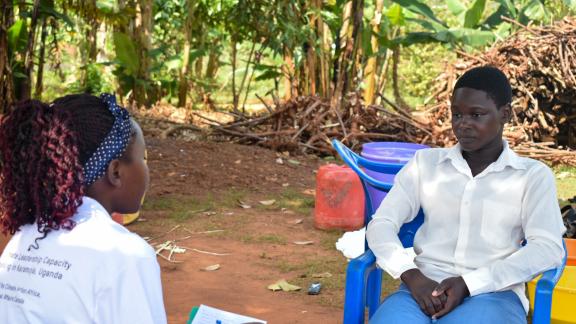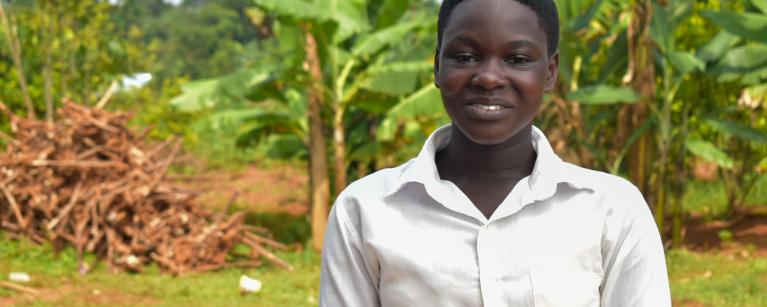As the Head Girl and an active member of the Health Club at Bukana Secondary School, Catherine Ajambo is at the forefront of empowering her fellow students, especially young girls, with information on sexual and reproductive health (SRH) services.
“When the health club was introduced, we were given booklets about SRHR, which we use to teach other students. They have important topics like abstinence, menstruation, early marriages, and the effects of drug abuse,’’ Catherine explains.
The club, which consists of 25 students, where 10 are peer educators and 15 change agents (10 boys and 15 girls) has become a safe space where students share their challenges and come up with solutions together. It meets every Saturday.
“We discuss issues that affect us, like early marriages, we talk about the dangers of child labour, stress, and mental health problems. We also warn the girls about the responsibilities that come with raising a child when we are still young, like buying diapers and providing care, so abstinence is key”
The health club also encourages younger students to stay in school and shun away from early marriages. “In our club, we tell the students that staying in school is the best way to secure our future,” she says.
To have the message reach even many students, the club takes its messages beyond meetings. They put up banners with SRHR messages from the Izuba manual on notice boards and in classrooms. They also hold one-on-one conversations with students who may feel shy to speak in public.
According to Catherine, what excites them in the club is the hands-on learning. The students in the club have been taught how to make reusable sanitary pads using simple available materials such as buttons, cotton cloth, and polythene.

Oxfam team engaging with Ajambo Catherine, a student leader driving change at Bukana SS, in her home in Namayingo district
“We make pads using the things we can find easily. Making our own pads has given us confidence. We’re no longer afraid or ashamed.” Catherine notes.
Catherine also believes that the health club is teaching both girls and boys the importance of girl-child education and exposing harmful cultural myths around menstruation.
“Some girls believe that starting their periods means they should get married. We help them understand that menstruation is normal and that it doesn’t mean they are ready to become mothers or wives,” Catherine says.
Catherine’s involvement in leadership in the health club has boosted her own confidence. “At first, I was shy to talk about periods or other health issues. But now, I know that talking about these things helps us support each other,” she adds.
As Catherine goes about her studies, she dreams that one day she will own an orphanage to take care of the girls and children.
With funding from Global Affairs Canada (GAC), Oxfam, CEHURD, Femme Forte Uganda, and Reproductive Health Uganda and School of Public Health – Makerere University are implementing six and a half years Stand-Up for SRHR project. The project addresses key gender inequality and human rights issues, particularly harmful social norms, traditional practices, and taboos regarding gender and sexuality; lack of adequate information on or access to comprehensive SRHR services; and lack of meaningful decision-making power by young women and girls regarding their health and sexuality. This project is implemented in Uganda, Mozambique, and Canada.
By Dorah Ntunga and Sarah Mazirwe
